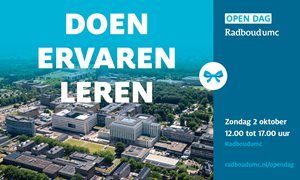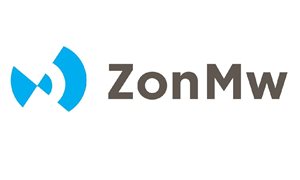
Six research initiatives of the Radboudumc receive a grant from the ZonMw Open Competition. A total of 31 research teams' applications have been honored. Each research team will receive an average of €750,000 for the research. All 31 research teams can use this funding to set up innovative collaborations that contribute to innovation in fundamental (bio)medical science and health care for the longer term. Read more about the Radboudumc's honored projects in this post.
A translational study towards the understanding of the role of the dopamine and serotonin systems in drug use motives
Judith Homberg (Radboudumc), Arnt Schellekens (Radboudumc), Jan Booij (Amsterdam UMC / Radboudumc)
Drug addiction is a chronic brain disease that develops over time and is characterized by great clinical heterogeneity, which means that treatments are not effective for all patients. The heterogeneity is caused, among other things, by different psychiatric conditions associated with drug addiction as well as social factors. This leads to individual differences in motives for using drugs, such as compulsive, impulsive, and negative urgency-driven use. These motives are emotion-driven, with the dopamine and serotonin systems playing an important role. In this project, researchers are combining patient and laboratory animal research to understand how the dopamine and serotonin systems in the brain together contribute to motives for drug use and how these systems and motives change over time. This provides biomarkers that can be used to better tailor existing drug treatments to individual patients.
Biomarking the brain: the conceptual, clinical and societal implications of the turn to biomarkers for brain disease
Marianne Boenink (Radboudumc), Edo Richard (Radboudumc), Harro van Lente (Maastricht University)
So-called "biomarker tests" are increasingly being used in the care of brain diseases such as Multiple Sclerosis, Alzheimer's or Parkinson's disease. Such tests can help diagnose a disease earlier, or determine whether a treatment is working. They also have other implications. With abnormal biomarkers, you can have a disease without having symptoms. This affects how patients experience their health and live their lives, and how society views a disease. These broader implications are not usually considered when deciding to use a new biomarker test. This project investigates the implications of biomarker testing for the divide between health and disease, for patients, healthcare and society as a whole. With this new knowledge, the researchers will (1) help medical professionals who must decide on the use of new biomarker tests, and (2) help patients and physicians who must decide whether to use such tests.
Care2report, the development and testing of automated medical visit summarization as integrated solution to enhance time with patients and reduce administrative burden in clinical geriatrics
Sandra van Dulmen (Nivel), Sjaak Brinkkemper (Utrecht University), Yvonne Schoon (Radboudumc)
Doctors have to make a report of every conversation with a patient. That takes a lot of time. If such a report could be made automatically, more time would be left for the patient. The researchers want to develop a smart computer system that automatically makes a report of conversations between doctors and patients. They are investigating whether this works during the first conversation of elderly patients to a doctor in the hospital. These conversations take a long time, sometimes up to two hours. Making a report takes a doctor half an hour. So an automated report could save a lot of time. The researchers are starting to build the computer system. They call this Care2report. Then they investigate whether Care2report works well and saves time for doctor and patient. They also look at whether the system reduces doctors' administration time and how it affects the content of conversations between doctor and patient. Finally, they examine the conditions under which other healthcare providers could use Care2report.
Cilia-MT-Dysregulation - Scrutinizing defective regulation of ciliary microtubule dynamics in ciliopathies towards identification of druggable targets
Ronald Roepman (Radboudumc), Anna Akhmanova (Utrecht University)
Cilia are a kind of elongated antennae of our cells, important for receiving and transmitting signals. Defects that disrupt the functioning of cilia can lead to serious hereditary diseases called ciliopathies. These often involve multiple organs, such as the retina, kidneys and brain. The scientists will investigate how disruption of factors that regulate the formation and maintenance of the cilia's cytoskeleton may contribute to the development of these diseases. They want to combine biochemical studies of this cytoskeleton with studies of it in cells and in brain organoids, a kind of model of brain tissue. They eventually want to determine whether certain drugs, already used in the treatment of cancer, inflammation, and peptic ulcers, among others, could possibly compensate for the impaired cilium function. This knowledge can be used in the development of currently missing therapies.
Microbiome-mitochondrial interactions impact neuronal circuits and gut-brain connections in Parkinson's disease
Bastiaan Bloem (Radboudumc), Joanne Trinh (University of Luebeck), Rejko Krüger (University of Luxembourg)
Parkinson's disease is the fastest growing neurological disorder worldwide. Drug treatment with levodopa is the main therapy, but provides only partial symptomatic relief. Moreover, the disease progression cannot be stopped. The development of new therapies that can slow disease progression is inhibited by lack of detailed knowledge of the underlying disease mechanisms. Importantly, multiple mechanisms likely contribute to the development of Parkinson's, but we do not know how they interact in an individual patient. The researchers are taking a novel approach to address this complexity by studying multiple mechanisms simultaneously, as well as their interaction. They will study the composition of gut bacteria, the presence of inflammation and the functioning of our "power plants" (mitochondria). The goal is to create a basis for new personalized treatments. In addition, the project team is receiving additional funding from a partnership with sister council Fonds Nationale de la Recherche in Luxembourg.
Unraveling immune deregulation in neurodevelopmental disorders caused by single gene mutations in the epigenetic machinery
Tjitske Kleefstra (Radboudumc), Janine Doorduin (UMC Groningen), Lot de Witte (Radboudumc)
Neurodevelopmental disorders are increasingly linked to a variety of rare DNA abnormalities. This results in great heterogeneity in both causes and symptoms, even within the individual patient over the life course. Here, severe neuropsychiatric deterioration is sometimes seen in (young) adulthood. This makes research into effective personalized treatments extremely urgent. The researchers are pooling knowledge and focusing on the role of the immune system in the brain, or neuroinflammation, in patients with mutated genes that play a role in epigenetic processes. We have strong evidence of disrupted immune processes, in both patient cells (white blood cells and his/her stem cell-derived microglial cells) and in mouse models. In parallel in these three systems, the investigators will unravel underlying immune processes and study their correlation. In doing so, they aim to arrive at more targeted treatments that act on these processes.
More information
Pauline Dekhuijzen

wetenschaps- en persvoorlichter
Related news items

Joint research in regional hospitals New research projects from promotion fund
22 November 2022Four research projects have been honored in the promotion fund of the Radboudumc and four regional hospitals. The research projects, which are a collaboration between CWZ, Jeroen Bosch Hospital, Rijnstate, Sint Maartenskliniek and the Radboudumc will receive a contribution of 240,000 euros.
read more
L’Oréal-Unesco For Women in Science grants now open to researchers in Life Sciences and STEM disciplines
8 November 2022The eleventh call for applications of the Dutch L’Oréal-Unesco For Women in Science fellowships opens on 16 January 2023. But this year, it’s a little different: next to researchers in Life Sciences, women working in the STEM disciplines can also apply.
read more
Take a special look inside Radboudumc on 2 October Open Day for young and old
12 September 2022On Saturday 1 and Sunday 2 October, the Radboud university medical center, Radboud University and the HAN are participating in the 'Weekend van de Wetenschap'. At all locations there are fun and interesting programs for young and old.
read more
Grants for heart and kidney research Two awards to Radboudumc in Open Competition ENW-XS
21 July 2022Two researchers from the Radboudumc receive a grant from the NWO within the Open Competition of the Exact and Natural Sciences. They are Thijs Eijsvogels, who studies the heart, and Pieter Leermakers, who studies the kidneys.
read more

